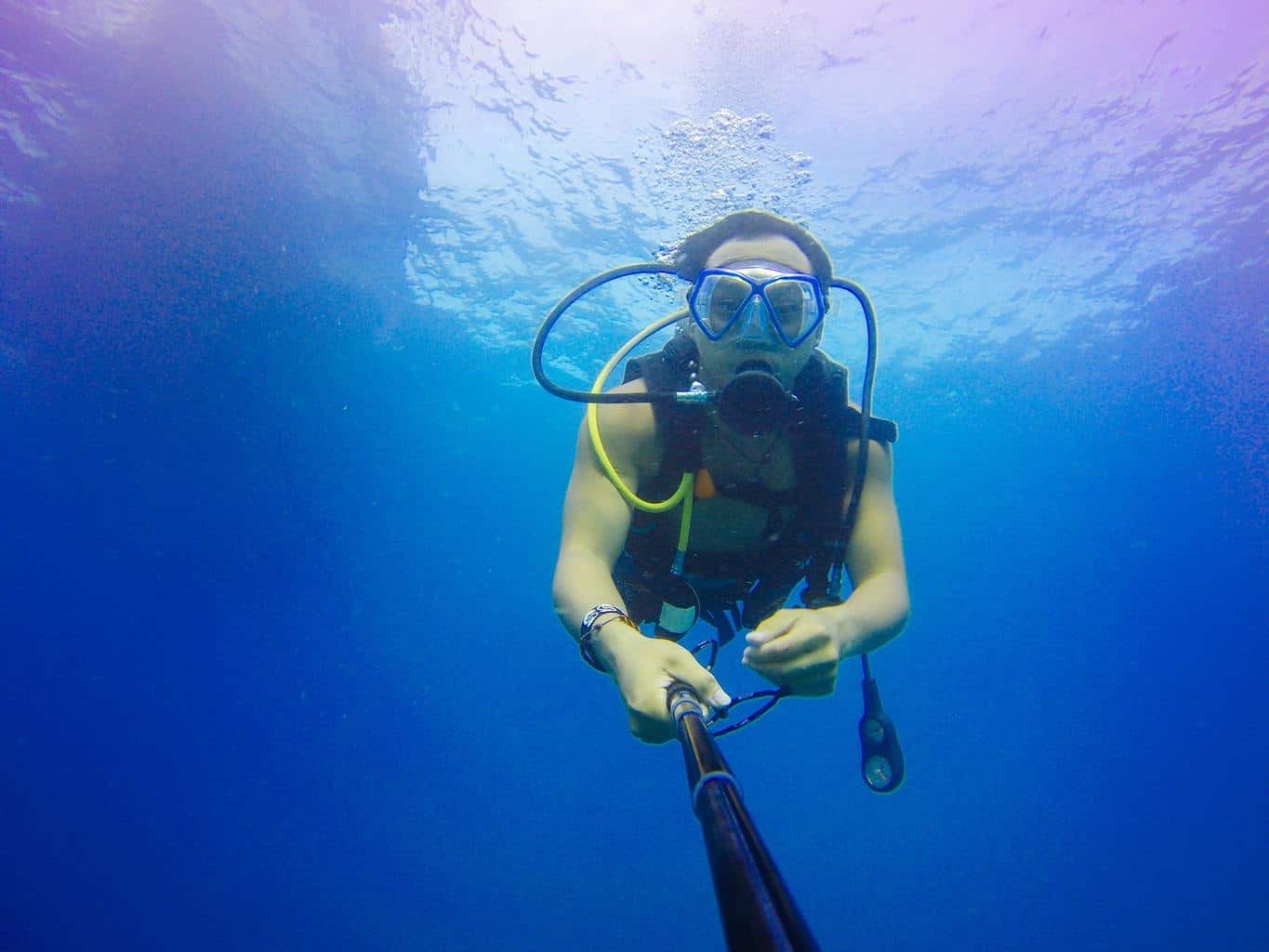Scuba diving can be one of the most relaxing activities you can find.
Wouldn’t cruising with the fish go well with a favourite chill-out tune?
Or perhaps some Pink Floyd as you drift along The (reef) Wall?
Music with scuba might seem like an exciting idea, but there are limitations as to what is possible technically, and also genuine safety and practical reasons why it might not be sensible.
We’re going to take a look at why listening to music while scuba diving isn’t a great idea and what the limitations are if you really wanted to.
- Should You Listen to Music While Scuba Diving?
- If You Really Want to, Can You Listen to Music While Scuba Diving?
- Conclusion
- You Might Also Like…
Disclosure: this post contains affiliate links (clearly marked with ), which means we may earn a commission if you buy something through them, at no additional cost to you.
Should You Listen to Music While Scuba Diving?
Scuba diving is well known for providing relaxation and feelings of stress relief amongst many participants.
Indeed “getting away from it all” is often noted as one of the most popular reasons for taking part in the scuba diving hobby.
The idea that music might add further to this does, at first thought, sound interesting.
So without considering the technical limitations for a moment, should you listen to music while scuba diving?
Risks to Situational Awareness
Scuba diving should and can be a relaxing sport, but it is also one that demands your focus and concentration to remain situationally aware, in control, and hence safe underwater.
Losing concentration underwater by getting distracted by music could lead to safety problems.
A music-focused diver might not be able to recognise a developing situation that could get them into trouble.
This might mean just not recognising a change in current fast enough and ending up having to swim a bit harder, but it could be worse depending on the situation.
A diver listening to music may be more likely to lose their buddy, or risk running out of air by not checking their gauge sufficiently often if they’re distracted by a favourite song as they drift along.
Underwater Communication Problems
There are three main ways divers can communicate with each other underwater:
- Touch – Not a problem if the diver is listening to music so long we’re close enough
- Hand Signals – Again not much of an issue if we’re inside the diver’s field of view
- Sound – Could be a significant difficulty if the diver is listening to music
While good buddy behaviour suggests that divers should be close to one another, they’re often not so close that physical contact is quickly available.
Catching a divers eye is limited not only by the mask that they’re wearing cutting their field of vision down, but also the fact that underwater we want to look closely at stuff.
At any given moment, what one diver is looking at might not be the same as what the others are paying attention to.
The most common way to get the attention of other divers is by making a sound.
Whether this is the divemaster rattling or banging on their tank to let you know that a Whale Shark is passing by while you’re busy studying the corals, or it’s your buddy trying to tell you that they’re low on air and it’s time for your safety stop, some kind of noise is what is generally used to get divers attention.
Not being able to communicate with sound could at best make things a little bit difficult underwater.
Worse, it could create safety situations caused by not being able to get the diver’s attention quickly.
Dive Etiquette
Written or otherwise, the “rules of dive etiquette” mean taking into account the other divers.
Sound, including your music, travels faster and is louder underwater, and so, if you could listen to it while diving, your music would probably be heard by others.
As the majority of divers enjoy the peace of just hearing the ocean sounds, it could be considered quite rude to disturb them with music.
Also, as we have discussed, you might be harder to communicate with, which really might not be appreciated.
All in all, especially if diving with people that don’t know you well, listening to music scuba diving might not make you the most popular diver on the boat.
If You Really Want to, Can You Listen to Music While Scuba Diving?
If you really want to, are there any ways to listen to music scuba diving?
These are some of the equipment issues that would need to be overcome to make it possible.
Depth Problems
The “waterproof” MP3 players and headphones that are available are typically suitable for swimming only.
They’re basically designed so that if you drop them in a normal swimming pool, you can fish them out and they’ll still work.
In general, these products are rated waterproof to a maximum of 3m/10FT so are essentially of no use to scuba divers.
Additionally, there would be a risk of a barotrauma injury to the scuba divers if “waterproof” earphones were used scuba diving.
Air trapped by the headphones would be compressed as the diver descends on their dive and the resulting squeeze could damage the ears.
Irrespective of the manufacturer’s quoted waterproof rating, earbud type headphones should never be worn diving underwater.
So even if you could find an MP3 player that is rated as suitable for scuba diving depths, you would need to find a solution to listen to it safely.
Waterproof Cases For Phones
Solid waterproof housings for phones do exist that are scuba diving depth rated.
Usually, these are designed to allow the phone camera to be used underwater.
Theoretically, depending on the control functions available, it would be possible to play music through the phones built-in speakers while diving.
It’s likely though that the sound quality would be awful, so not only would you likely be annoying other divers, but the experience itself would be pretty poor.
It’s worth noting that the common “flexible bag” underwater housings shouldn’t be used for scuba diving.
As they are flexible, the air trapped inside will be compressed on a dive, and so the phone will be subjected to unusual forces from the water pressure.
Normally, this just means that buttons are pressed unexpectedly, or the screen is unresponsive, but it could cause the screen to crack or other damage.
Save this type for snorkelling or as a waterproof protector to keep your phone safe on the dive boat, and get a proper rigid case if you do want to take your phone underwater.
“Outside the Box” Suggestions
Commercial divers with full face masks or full diving helmets often have tethered communication systems to the surface.
It could be possible for this system to be used to play music, but really we wouldn’t expect a full audiophile experience.
Underwater speakers are available that are often used in swimming pools, and these could be used in a scuba environment.
We’re not sure that a dive charter boat which pumps music underwater during the dive would be that popular with the majority of divers though.
All in all, it doesn’t seem that there’s a practical solution to listen to music while scuba diving even if you were willing to ignore the social and safety aspects.
The Future of Listening to Music Underwater
Possibly in the future, an effective solution for personal underwater sound while scuba diving may be marketed widely.
The key use would likely be in the line of underwater communications, rather than music, however.
Possibly this could use the technology of bone conduction for transmitting sound which uses special headsets that fit against the cheekbones to generate sound rather than traditional earphones and so eliminate the risk of ear damage, as well as providing the sound only personally.
Conclusion
While it might seem like a good idea initially, there are safety, social and practical aspects that make listening to music while scuba diving inadvisable and virtually impossible.
We strongly suggest enjoying the relaxation of the dive for itself, concentrate on having as much fun as possible safely, and save your music for your headphones up on the boat while enjoying the sun between dives.
You Might Also Like…
-

How Do Scuba Divers Drink Water? 5 Possible Ways (+7 Tips)
-

How Long Can Scuba Divers Stay Underwater? (+9 Limiting Factors)
-
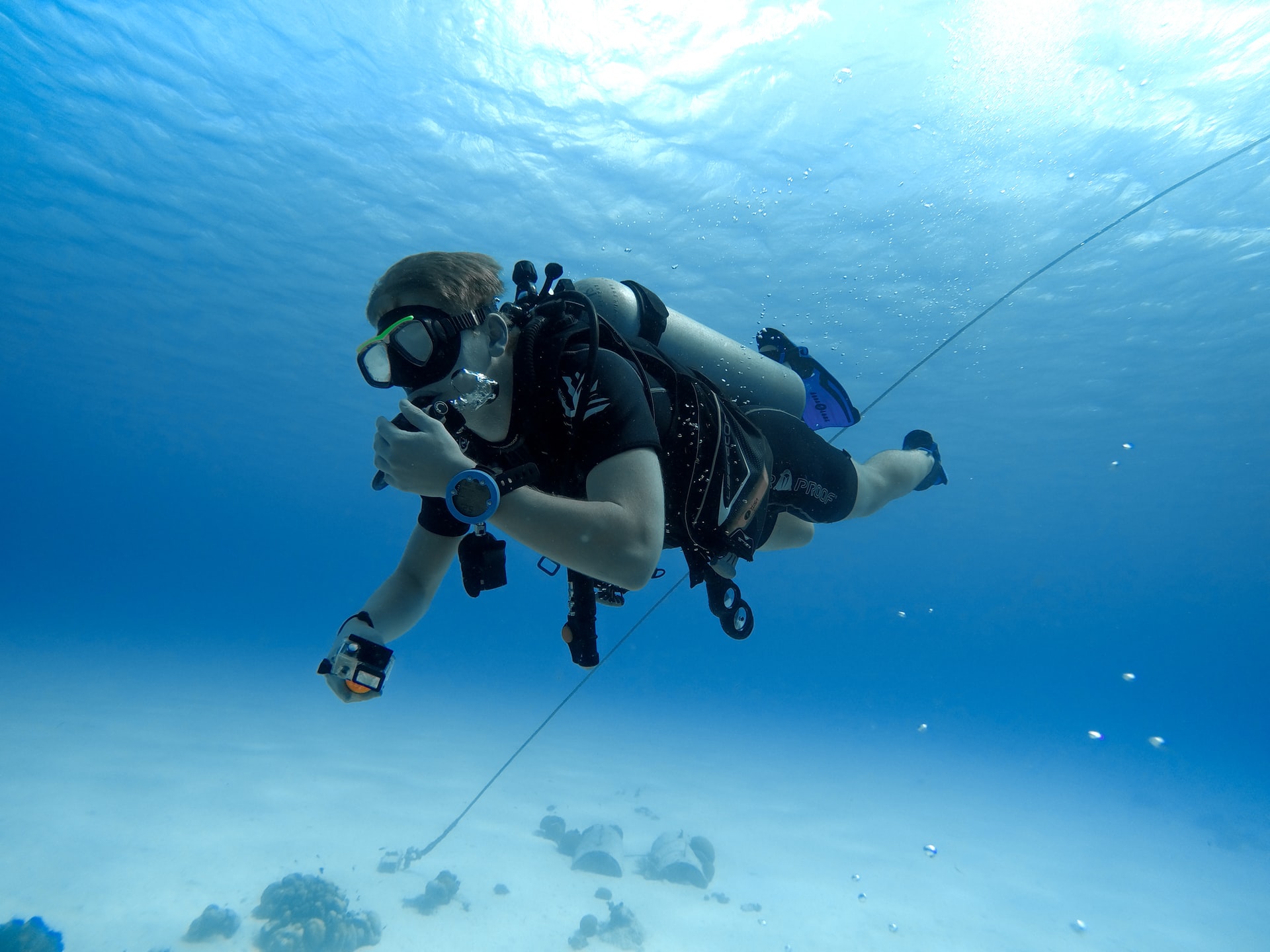
Are Scuba Divers Athletes? All the Facts (+New Competitive Forms)
-
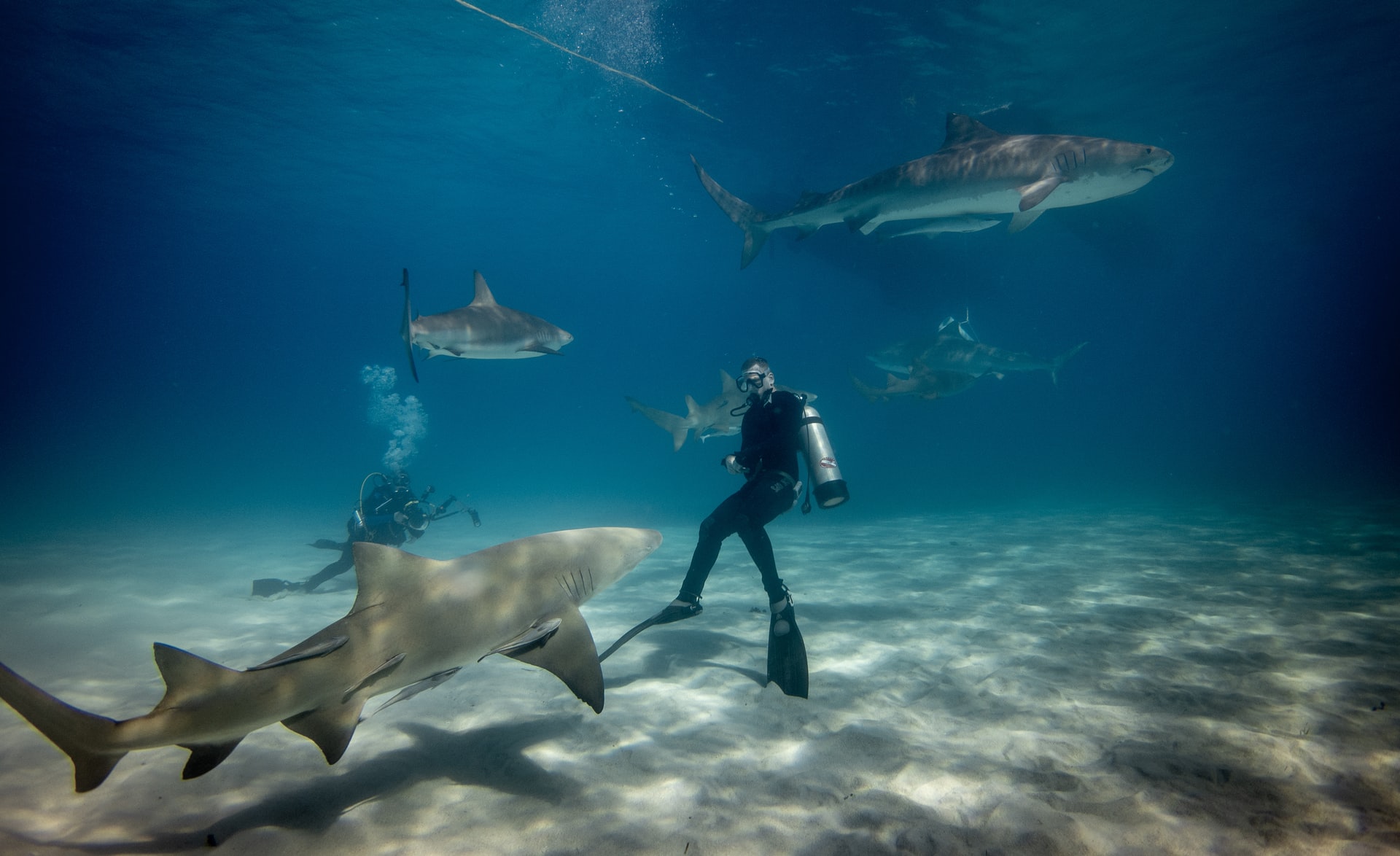
Are Sharks Scared of Scuba Divers? (What Every Diver Must Know)
-
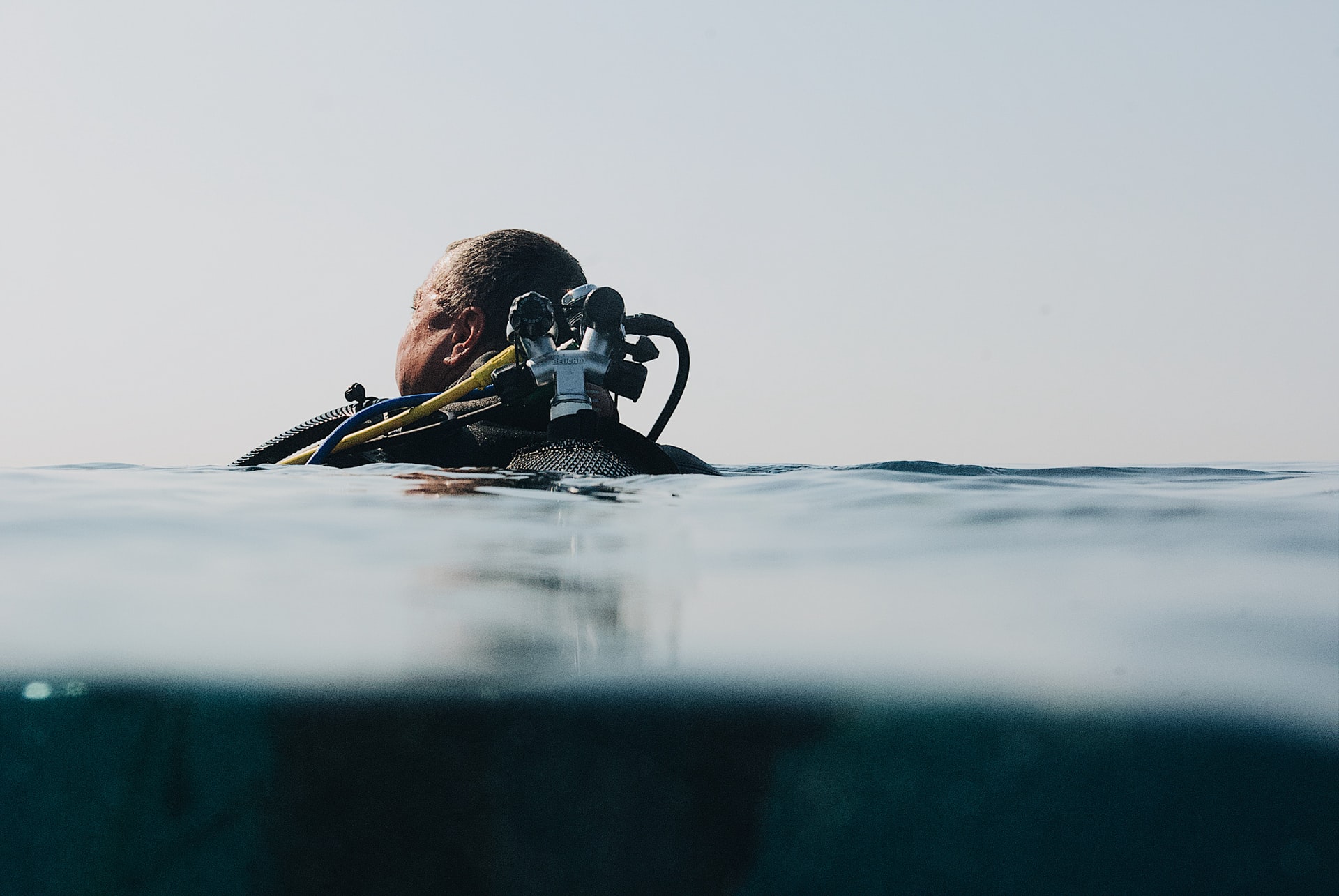
Who Should Not Scuba Dive? 17 Reasons (Every Diver Should Know)
-
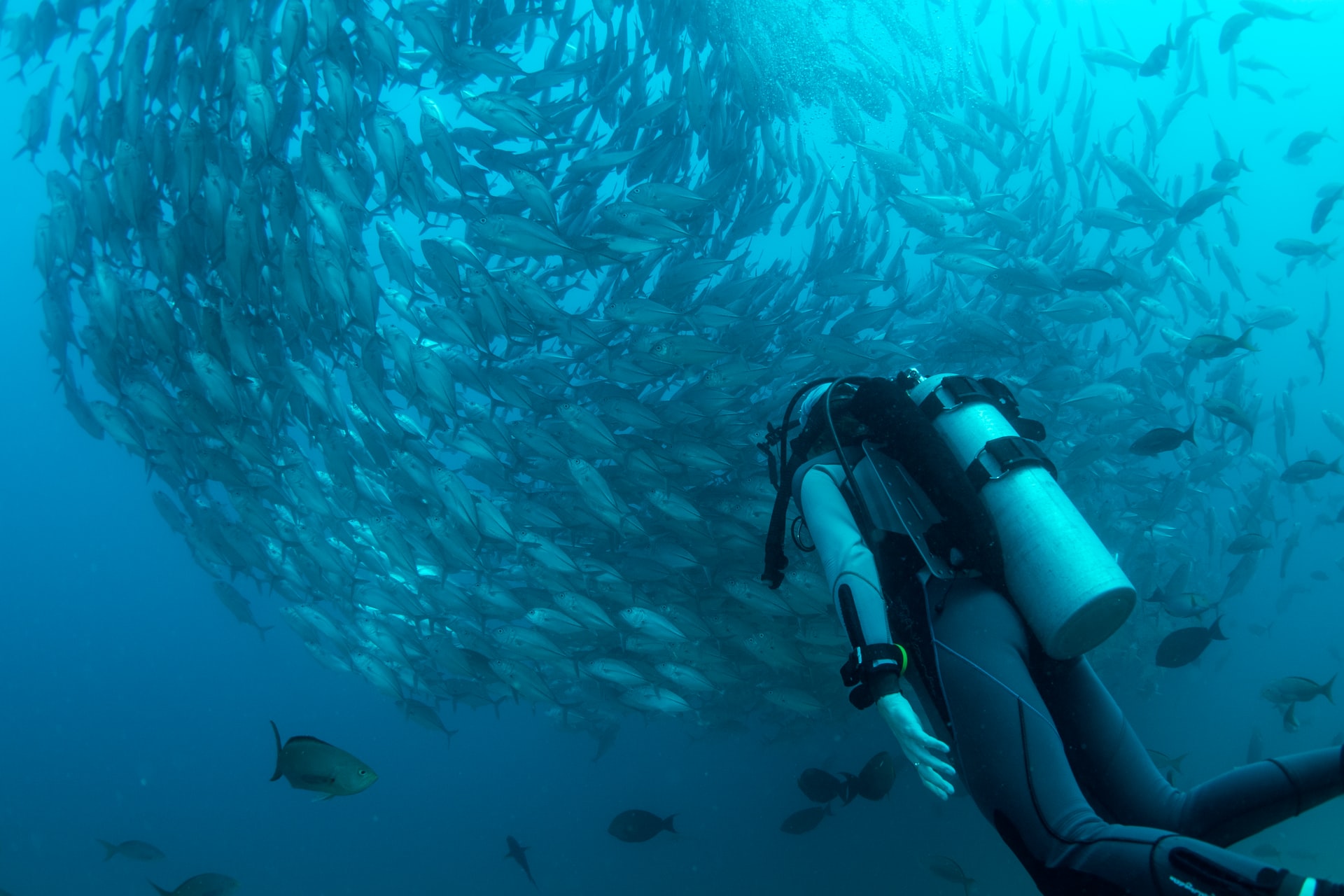
Should I Be Scared of Scuba Diving? 8 Common Fears (Debunked)
-
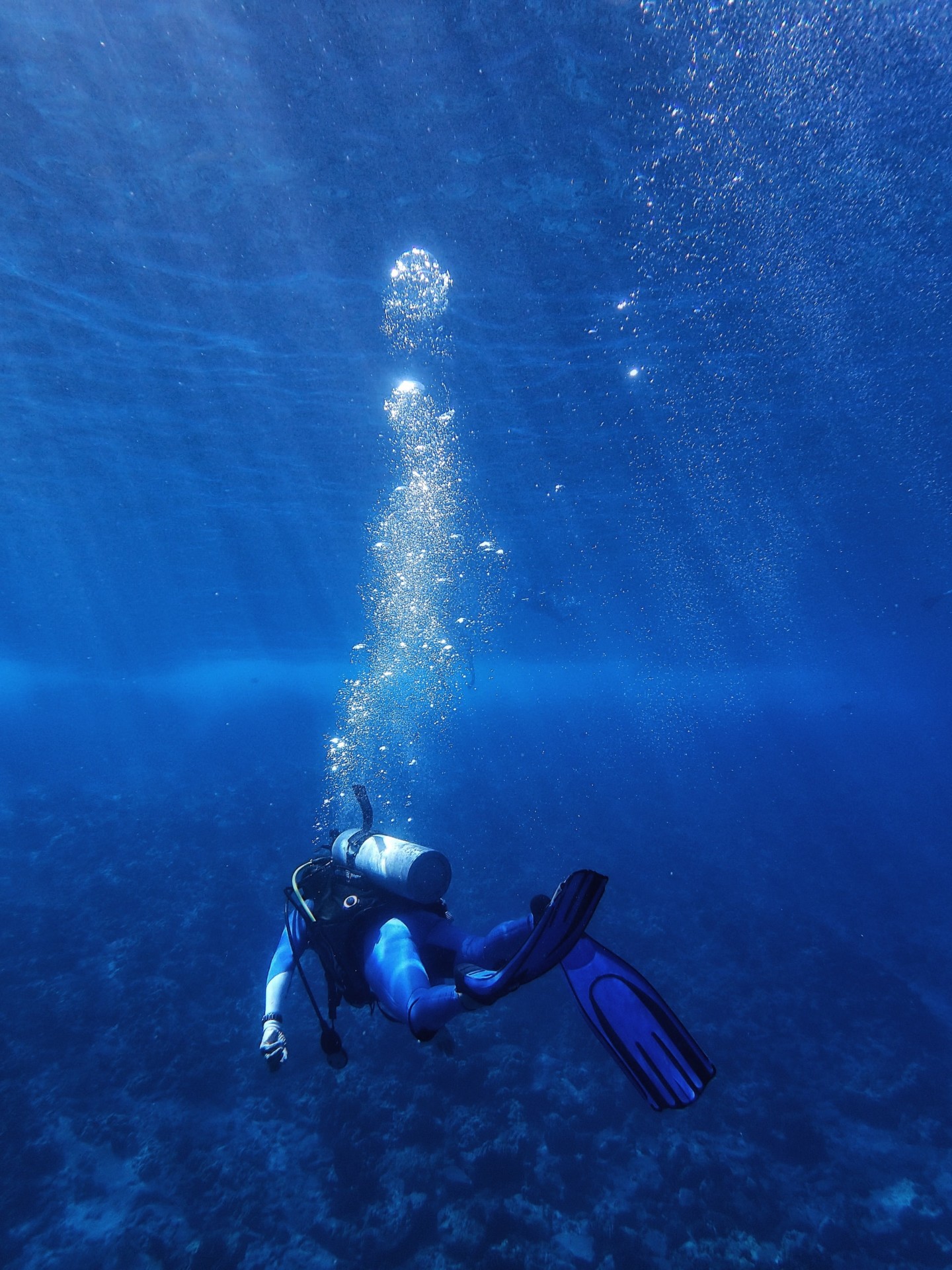
Why Do Scuba Divers Use More Air at Depth? (+4 Practical Tips)
-
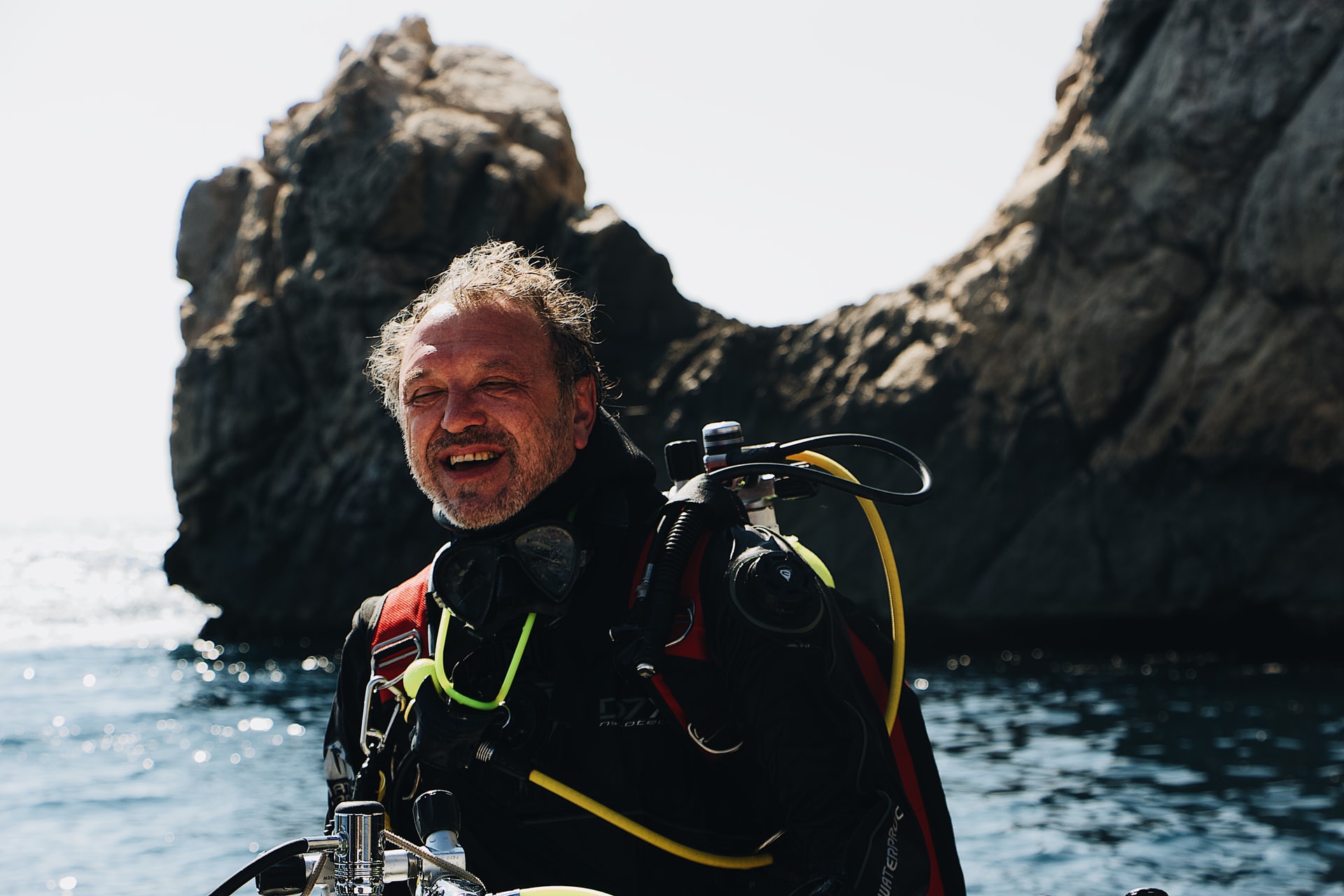
At What Age Should You Stop Scuba Diving? (+9 Tips for Older Divers)
-
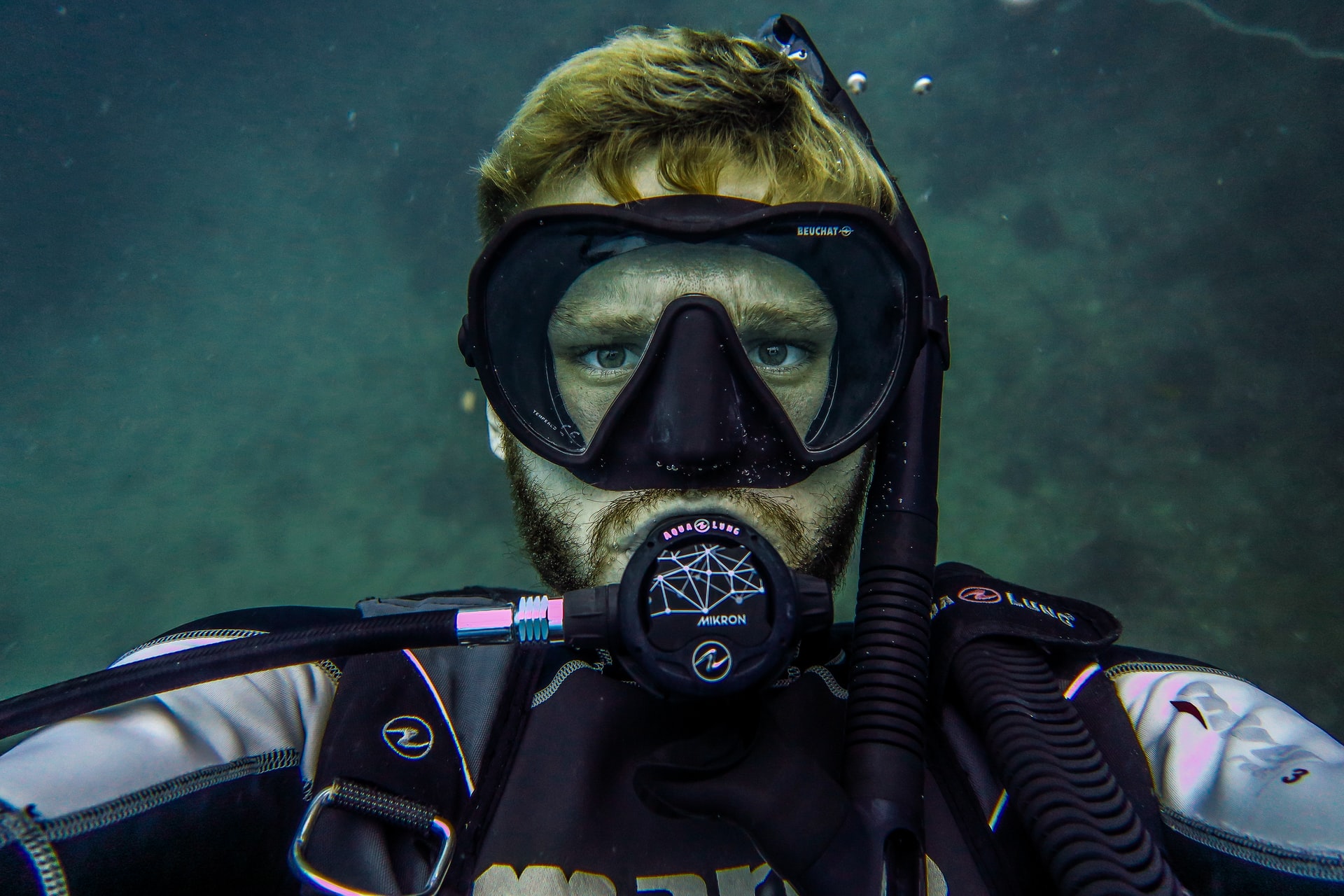
Should I Shave Before Scuba Diving? Crucial Facts (+9 Helpful Tips)
-
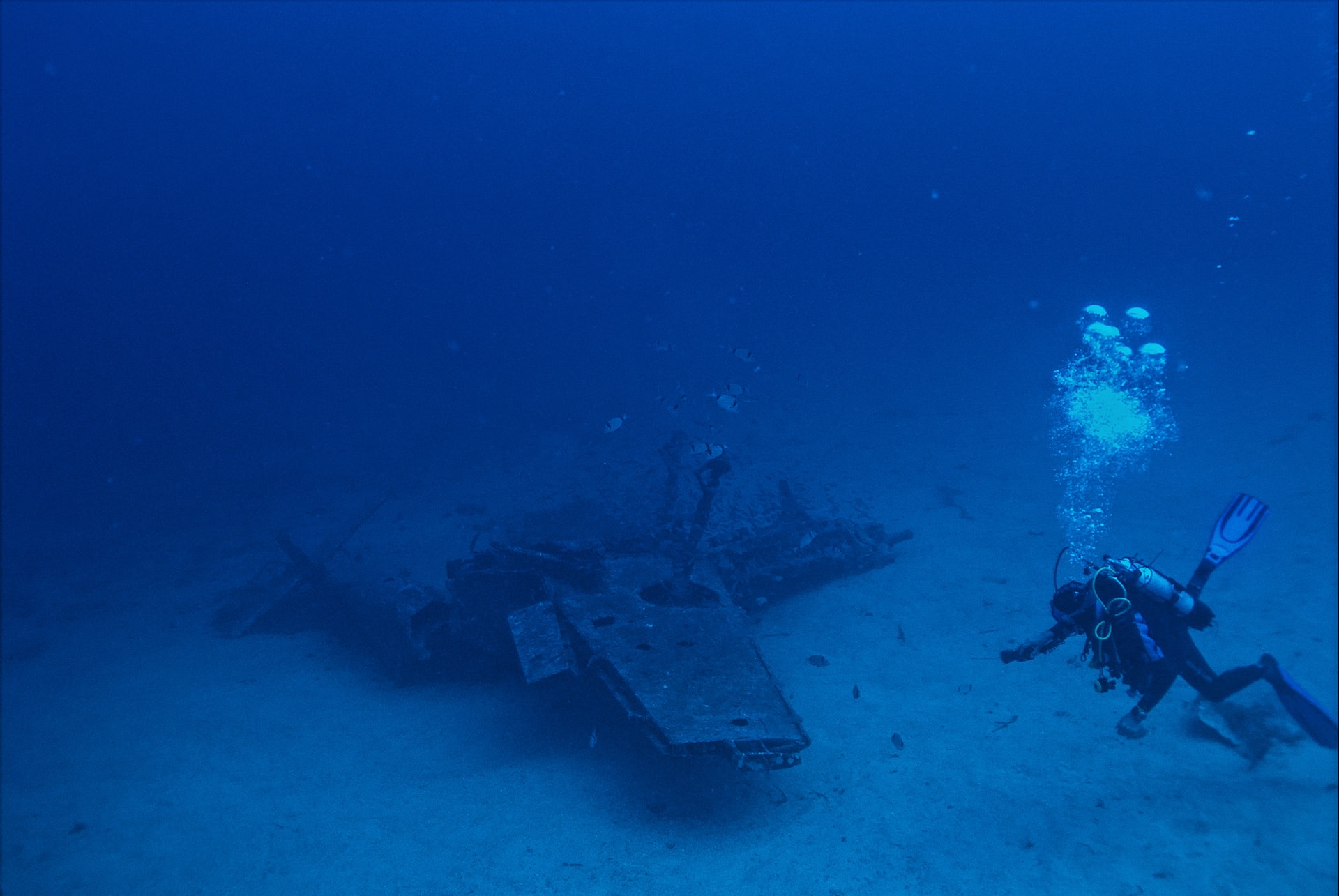
Why Do Scuba Divers Use Helium? (+Its Pros & Cons)
-

Why Do Scuba Divers Go in Backwards? (+3 Alternative Entries)
-
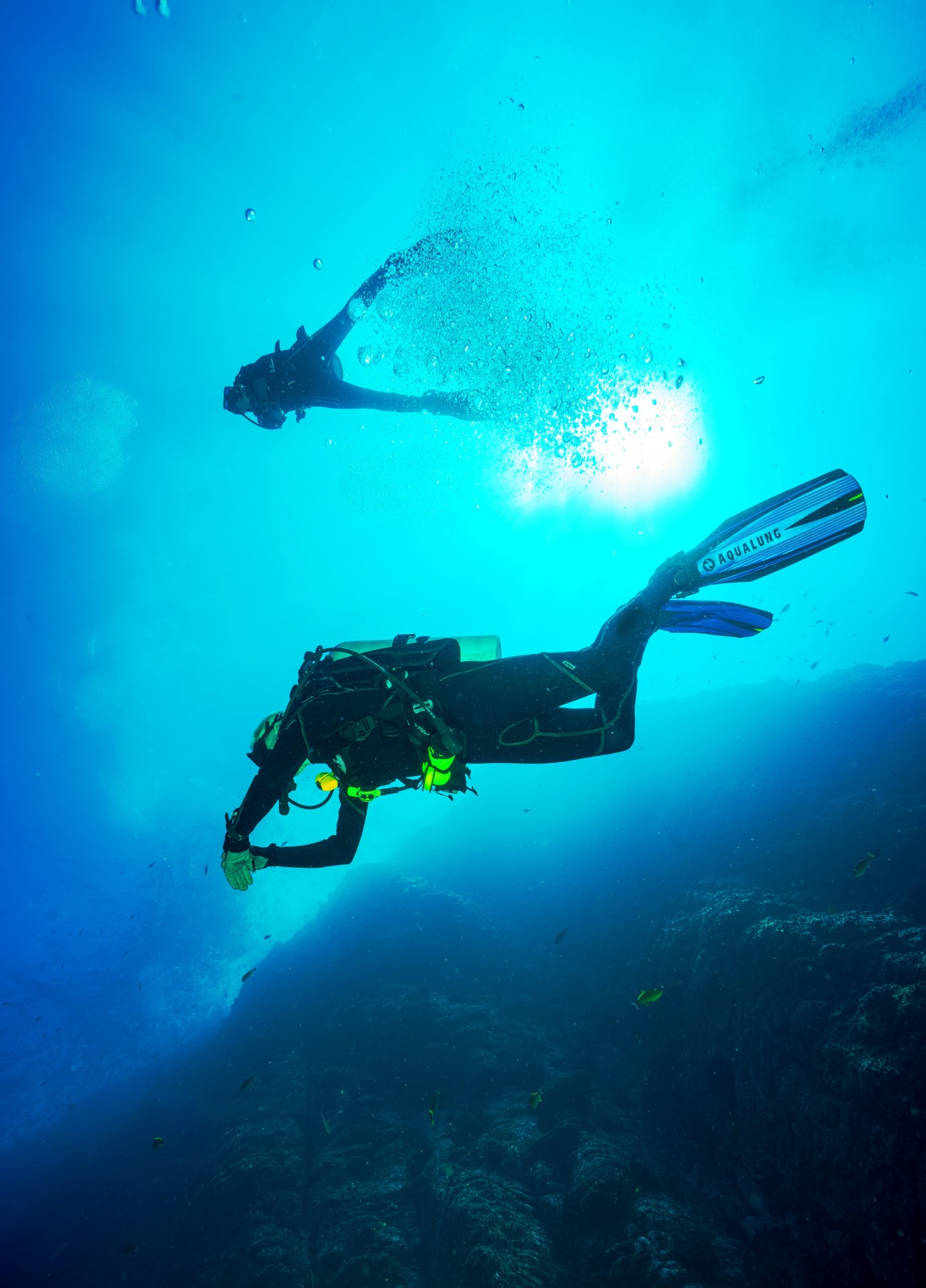
How Do Scuba Divers Sink and Float? (+Tips to Get It Right)

